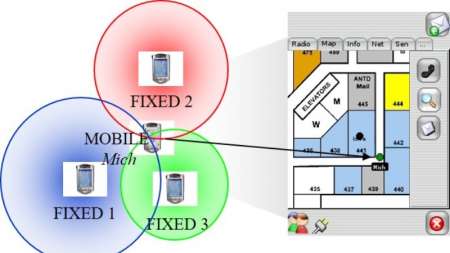A new report urges the Pentagon to significantly increase investments to modernize and strengthen positioning, navigation, and timing (PNT) systems, warning that critical upgrades are essential for the effectiveness of the Golden Dome missile defense shield. […]
The U.S. Space Force (USSF) on Aug. 12 launched a testbed satellite for experimental position, navigation and timing (PNT) technologies – marking a milestone that comes after years of development and certification delays. […]
A bipartisan pair of senators is asking the Department of Homeland Security (DHS) for more information on the agency’s efforts to protect Global Positioning System (GPS) technologies from foreign threats to their operation. […]
The Defense Department (DoD) said on Nov. 27 that the U.S. Air Force awarded Raytheon Co. a $196 million change order modification to a previously awarded contract for the Pentagon’s development of its Global Positioning System (GPS) Next Generation Operational Control System (OCX). […]
Congress and the Department of Defense (DoD) must prioritize oversight of Global Positioning System (GPS) technology modernization to address vulnerabilities and delays in developing improved GPS system resilience, and to keep pace with advancements being made by U.S. adversaries, tech experts said at a Hudson Institute event on Nov. 4. […]
The Department of Defense (DoD) has worked for more than two decades to modernize its GPS with a more secure, jam-resistant, military-specific signal known as M-code. The Space Force, part of the Department of the Air Force, is responsible for GPS modernization. […]
An independent White House advisory group that focuses on Global Positioning System (GPS) technologies is calling out the U.S. government as a whole and the Department of Defense (DoD) in particular for stumbling over satellite interference issues and lagging on positioning, navigation, and timing (PNT) systems alternatives. […]
The U.S. Department of Transportation (DOT) is looking for industry insight on how to best complement and support its Positioning, Navigation, and Timing (PNT) functions with new technology that does not depend on traditional Global Positioning System (GPS) tech. […]
With the near-universal reliance on Global Positioning System (GPS) technologies for communications applications also posing a range of potential security challenges, the Department of Homeland Security (DHS) Science and Technology Directorate (S&T) has announced plans for a new testing program to evaluate how well GPS systems do against spoofing and disruption exploits. […]
A recent report from the Government Accountability Office (GAO) is urging the U.S. Space Force to reassess its plans for modernizing the global positioning system (GPS). […]
The Department of Defense (DoD) is failing to track the continued progress of the military’s development of Global Positioning System (GPS) alternatives and lacks key information to make decisions on funding those initiatives, according to a recent Government Accountability Office (GAO) report. The GAO report – published last week – explained that the U.S. Air Force’s […]
The United States military is developing a new Global Position System (GPS) signal resistant to interference, such as jamming. The Department of Defense (DoD) plans to install this technology on hundreds of weapons systems, but a recent report from the Government Accountability Office (GAO) found that incomplete data hinders deployment efforts. […]
The Department of Defense’s (DoD) Defense Innovation Unit (DIU) is looking for commercial solutions to counter Global Positioning System (GPS) spoofing of DoD’s global navigation satellite system (GNSS) by nation-state adversaries, according to a request for solutions DIU posted. […]
The Government Accountability Office (GAO) said that the Department of Defense (DoD) is failing to properly prioritize the development of Global Positioning System (GPS) alternatives. […]
The first GPS III satellite has taken its place in the celestial sphere, initiating an upgrade of the Global Positioning System that promises faster, more reliable service and hardened protections against jamming and cyber attacks for lower costs than the current constellation. But the Air Force, which launched GPS III on Dec. 23, 2018, has a long, uncertain way to go before delivering on a project that has seen significant delays and cost overruns involving both space and ground operations. […]
The military’s reliance on the Global Positioning System is so great that an obvious question arises on a regular basis: What if it isn’t available? […]
A new report from a group of Federal government and private sector experts details how “precision agriculture,” or agriculture that uses connected technology to improve efficiency, faces new cybersecurity threats and a low degree of awareness in the industry to combat them. […]
A National Institute of Standards and Technology (NIST) research team collected data from four different smartphone models over an 18-month period to further the development of indoor navigation apps. This type of technology would assist users in finding their way inside unfamiliar buildings, help emergency responders find victims, direct visitors to find specific works of art in large museums, and more. […]
A new bill would require Federal agencies to obtain a search warrant to access information on citizens without their knowledge. It comes in response to the increasing use of “stingray” devices that Federal, state, and local agencies use to track criminal suspects, capturing data on innocent bystanders as well. […]













